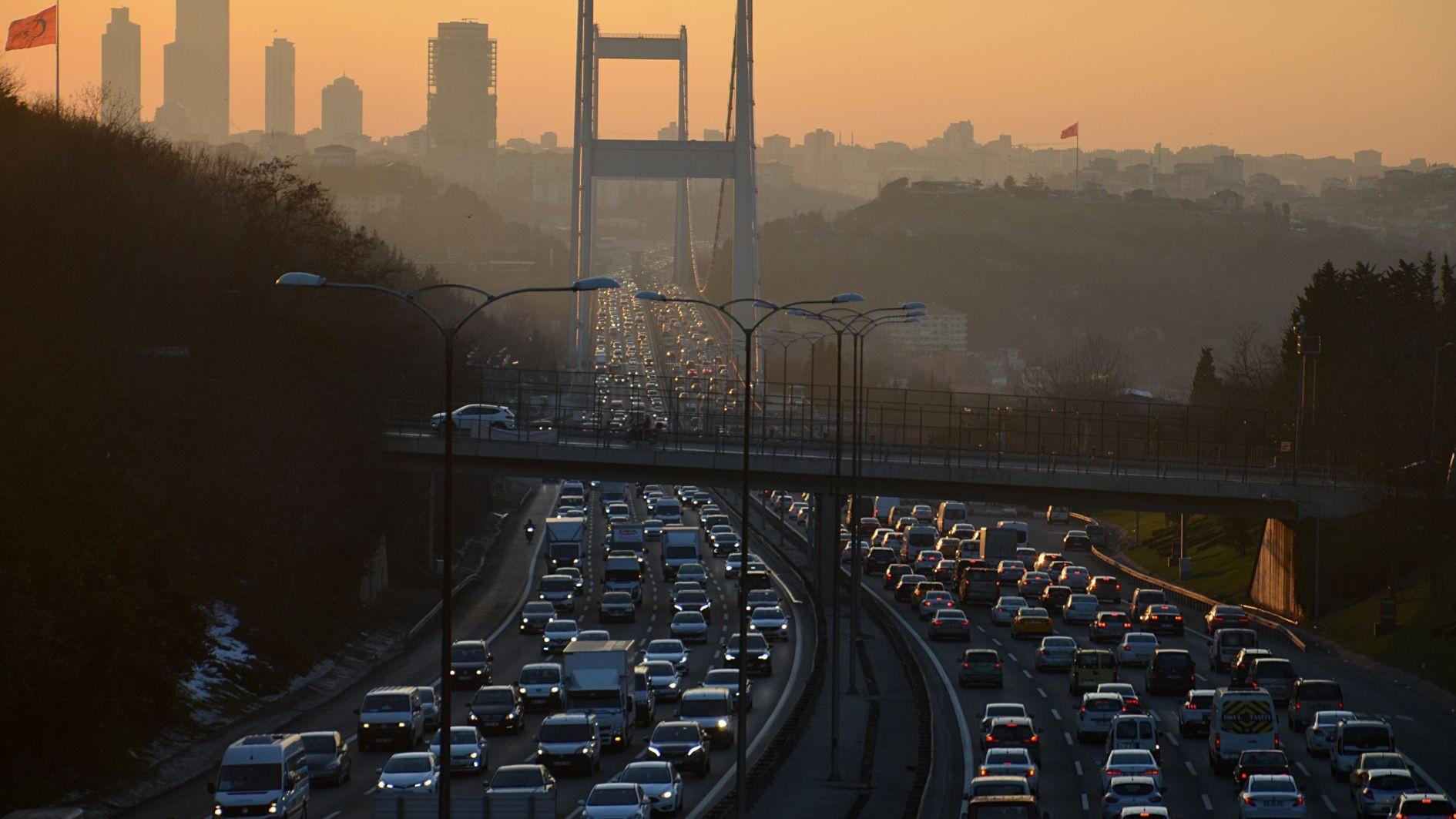
Istanbul residents lost 105 hours in traffic congestion last year, with a measured congestion level of 41 percent, placing the megacity first in Europe and 35th globally for traffic delays.
The data comes from a doctoral study by Dr. Hüseyin Korkmaz of Istanbul University, concerning artificial intelligence-based estimation of traffic accident duration using data-driven methods.
The study revealed that a total of 97,354 traffic accidents were officially recorded in Istanbul throughout 2024.
“Our analysis showed that most accidents occurred during peak commuting hours — between 5 a.m. and 8:30 a.m. and 6 p.m. and 9 p.m. — and primarily on main roads such as the D-100, TEM Highway and coastal roads,” Korkmaz explained.
These accidents not only pose serious safety risks but also contribute significantly to time lost in traffic.
Even though speeds are low during peak commute times, drivers experience a kind of tunnel vision or temporary blindness caused by fatigue and distraction, Korkmaz explained.
"You become distracted and are unable to demonstrate sufficient reflexes. Although it doesn't result in serious accidents, minor ones do occur. After the crash, the traffic stops moving altogether,” he pointed out.
Even the closure of a single lane due to an accident or breakdown can create a ripple effect, resulting in at least 10 minutes of delay for all vehicles behind it, according to Korkmaz.
“The traffic congestion already irritates residents, so they can't handle it when it takes forty minutes to go ten kilometers to reach their destination. People suffer from even a one-minute traffic delay,” he noted.
The research examined accident data between 2013 and 2021, showing that the city experienced 147,626 accidents during this period. Of these, 99,512 incidents caused traffic to be delayed by up to 30 minutes, while 1,751 accidents resulted in congestion lasting up to 90 minutes.
While the highest number of accidents occurred between the years 2018 and 2021, the district of Zeytinburnu stood out as the location with the most reported incidents.
Fridays emerged as the most accident-prone day of the week, aligning with Istanbul’s notoriously heavy end-of-week traffic.
While traffic management and infrastructure development are often cited as solutions to Istanbul’s congestion, Korkmaz emphasized that these alone are not enough.
The city’s rapidly growing population, driven largely by internal migration, continues to strain the transportation system.
“As long as people keep moving into Istanbul in large numbers, traffic problems will persist,” Korkmaz stated.
Population growth must be curbed, and employment opportunities should be distributed to other regions as a proper solution, according to Korkmaz.